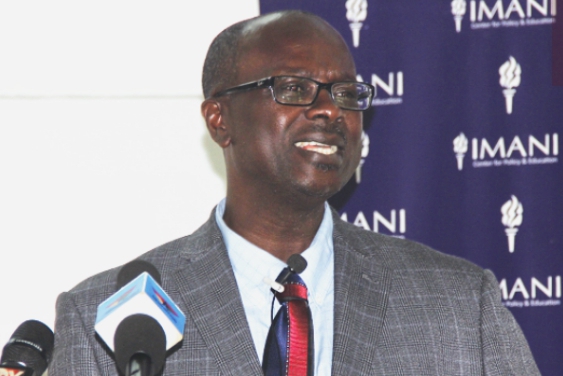Election Petition: I disagree with the Supreme Court in disallowing document inspection – Prof Kwaku Asare
The petitioners, both now and in 2013, applied to inspect documents in the custody of the EC.

The petitioners, both now and in 2013, applied to inspect documents in the custody of the EC.
In both cases, the EC and the Respondent (the one declared elected) opposed the application. In both cases, the Court unanimously rejected the application.
Some disagreed with the Court in 2013 but who now agree with the Court. Then some now disagree with the Court but agreed with the Court in 2013.
There may be those who agreed with the Court in 2013 and now. They may have good reasons for their stand.
I disagreed with the Court in 2013 and do now. My reasoning is simple. Unless there is some privilege that is being asserted, all government documents should be discoverable.
The EC loses nothing by making available to a petitioner any and all documents that the petitioner believes will help his case.
I dare say such willingness to disclose information actually enhances the reputation of the EC and further adds credibility to its declaration.
Some have said that if you have copies of bank deposit slips then that should be enough if you have a dispute with the bank on your actual balance, where the bank claims to use the same slip but has provided multiple balances. I demur. A customer is entitled to know why the bank gets different balances. Besides the bank loses nothing by providing the slips, even if it is true that it once gave them to the customer.
The requirement for the custodian of documents to make them available to its customers is even more compelling for an organization, such as the EC, that is charged with performing a public function that requires independence and accuracy.
Further, we are all aware of the problems of carbonized copies, many of which are detailed by the Court in 2013.
Discovery, including the inspection of documents, should let the parties learn about their adversaries’ evidence to give them time to obtain challenging evidence.
The government and its agencies have a high duty of disclosure to the public and certainly to those challenging their decisions and declarations. It is in that spirit that most people welcome the televising of the election petition.
The Court agreeing to televise the proceedings is the Court’s way of communicating to the public that it has nothing to hide and will be fair to all parties.
The EC too appreciates this spirit and has a website with some disclosures. Being in a Court arena should not diminish its commitment to transparency. It should heighten it. The EC helps itself when it appears to be helping all parties understand what it has done rather than when it assumes an adversarial role.
While named as a respondent, the EC should see its role in Court as one of an independent body seeking to help the Court, the parties and the public to understand the work it has done and to resolve any doubts surrounding the work. It errs when it assumes an adversarial or advocacy position.
Further, much of the time that is spent in Court arguing for and against these applications will be saved if the EC simply provided the requested documents (here Forms 9, 10, 11, 12 and 13).
I will support a revision of the Court’s rules to compel the EC, and other public agencies, to disclose documents in their custody to those who challenge their decisions and declarations.
Anyone who will want these disclosures as a petitioner should support this move. We must avoid taking positions based on where we stand.


